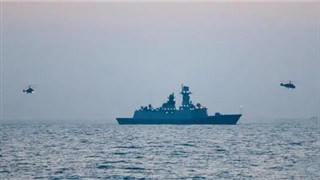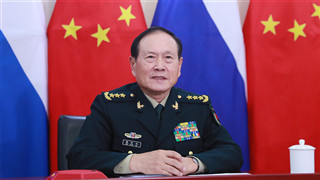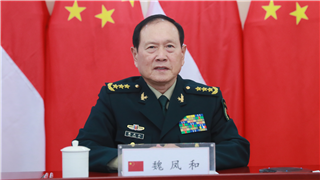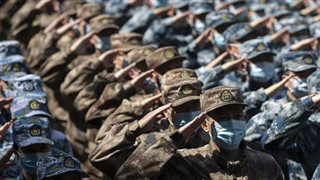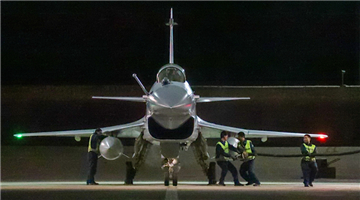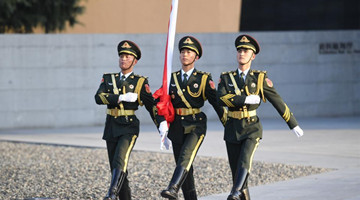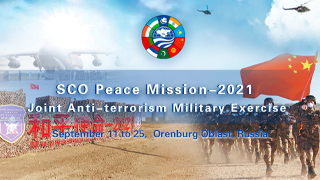By Hu Bo
胡波
US Secretary of State Blinken arrived in Indonesia’s capital Jakarta on December 13, where he is expected to give a speech on America’s “Indo-Pacific strategy”. His first Southeastern Asian trip after taking office will also take him to Malaysia and Thailand.
美国国务卿布林肯13日抵达印尼首都雅加达,并计划就美国“印太战略”发表演讲。在这次东南亚之行中,他还将访问马来西亚和泰国。这也是布林肯出任国务卿后第一次访问东南亚。
Southeast Asia has become increasingly important in the strategic contention between the US and China, reported some media. The reason is simple. In addition to maintaining its political, economic and military clout, the US takes containing and curbing China on the sea as a key consideration.
有媒体称,东南亚日渐成为美国和中国这两个世界大国之间的一个战略争夺要地。原因不难理解,除了美国试图维系自身的政治、经济和军事等影响之外,在海上围堵及遏制中国无疑是其主要考虑。
From America’s point of view, the South China Sea and its surrounding regions are extremely important both for its “Indo-Pacific strategy” and the “Return to Sea Control” policy. But since the end of the Cold War, Southeast Asia has been a weak link in America’s military strategy and maritime strategy in Asia Pacific, as manifested in the seriously inadequate forward military presence, lack of reliable strategic pivot, and absence of a powerful alliance system. Therefore, amid the chant and narrative of “major country competition” and “China threat”, the US has spared no effort in stressing Southeast Asia’s position in its strategy.
从美国的角度看,无论是“印太战略”,还是“重返制海”,南海及其周边地区都极为重要;但自冷战结束以来,东南亚地区都是美国亚太军事战略和海洋战略的“短板”,如前沿军事存在严重不足、缺乏可靠的战略支点、没有强有力的同盟体系等。因此,在“大国竞争”和“中国威胁”的口号及叙事背景下,美国会不遗余力地强调东南亚在其战略中的地位。
However, what the US has done in the past ten-plus years falls far short of its official fancy promises as all the progress is concentrated in military security. Washington has markedly increased its military presence in the South China Sea and Southeast Asia, with ever more frequent close-in reconnaissance, cruise and deterrence in the South China Sea. It has also intensified interaction and cooperation with Southeast Asian countries in military exercise, training and arms deals.
然而,十多年来,美国的行动与其官方辞令有着不小的差距,主要的进展都集中在军事安全领域。美国大幅提升在南海及东南亚地区的军事存在,在南海的抵近侦察、巡航和威慑等动作;普遍加强了与东南亚国家在军演、培训和军火买卖等方面的互动及合作。
But not much has been done in diplomatic, economic and other fields. For one thing, America is only interested in military security while diplomatic engagement and economic aid and cooperation are just candies to lure in the Southeast Asian countries. For another, America is incapable of doing things on all fronts in parallel. With the change of administrations, its policies are never consistent, its economic strength and influence are falling, and its soft power is waning, all of which have taken a serious toll on the implementation of its strategies and policies.
但在外交和经济等其他领域,美国的进展并不大。一方面,美国的兴趣主要在军事安全领域,外交接触和经济领域的援助及合作,不过是其吸引东南亚国家的噱头;另一方面,美国本身力有不逮,不同政府政策难以连续,自身经济实力和影响力的下降与软实力的衰退等,都对美国战略和政策的落地产生很大的负面影响。
In the meantime, most Southeast Asian countries are disgruntled by America’s regional and maritime strategies. First, the US takes Southeast Asia as the main battlefield of its so-called “major-country competition” and is trying more overtly to rally regional countries to form a reinforced front against China. But most regional countries don’t want to take sides between the two powers. Even if some of them that have maritime disputes with China hope the US can curb so-called China’s “expansion on the sea”, they are in no way willing to serve as cannon fodder in the China-US competition or even conflict.
而东南亚大多数国家对于美国地区战略和海上战略也有诸多抱怨与不满。一是,美国将东南亚地区作为“大国竞争”主战场,拉这些国家入伙以强化其“对华竞争”的意图愈发明显。而大多数东南亚国家不愿意在中美竞争中“选边站”,尽管一些与中国有海洋争议的国家希望美国能在牵制中国“海上扩张”中发挥作用,但都不希望自己成为中美竞争甚至冲突的“炮灰”。
Second, the US is half-hearted in helping Southeast Asia and often stops at paying lip service. The US is the most unreliable major power in all ASEAN’s cooperation mechanisms, worse than countries such as China, Japan, ROK, Australia and Russia in terms of policy continuity. The US also lags far behind China and Japan in regional economic development and cooperation and infrastructure upgrade.
二是,美国政策三心二意,经常口惠而实不至。美国是东盟系列合作机制中“最不靠谱的大国”,其他国家如中国、日本、韩国、澳大利亚和俄罗斯等的政策延续程度都要好于美国;在地区经济发展与合作、基础设施提升等方面,美国的表现远不如中国和日本。
Third, America’s tricks of forging small multilateralism and clique will impair ASEAN’s much-valued central position in East Asian cooperation. ASEAN countries are obviously not key members in America’s Indo-Pacific strategy. There is a strategic mismatch between the US and ASEAN because the former is so bent on major-country competition that it has neither the ability nor the will to provide more public products in other areas, whereas Southeast Asian countries are still focused on socio-economic development, and the protection, hedging and containment provided by the US, important as they are, are not that essential or indispensable.
三是,美国搞“小多边”和“小圈子”的动作,将直接弱化东盟国家十分看重的其在东亚合作中的“中心地位”。在美国的“印太战略”里,东盟国家显然都不是核心成员。美国与东盟国家战略错位的根本问题在于,美国一门心思聚焦于大国竞争,没有能力也没有意愿加大提供其他方面的公共产品,而东南亚地区所有国家的主要任务还是经济社会发展,美国提供的保护、对冲和牵制固然重要,但并不能“当饭吃”。
No matter how sounding Washington’s diplomatic rhetoric is, its fundamental purpose in strengthening the engagement with Southeast Asia is for countries in the region to arm themselves at their own expenses and join its anti-China “regiment”. To put it blankly, it wants to use other’s capital, resources and space to shore up its own strategic weakness.
无论美国的对外说辞如何冠冕堂皇,其在东南亚地区加强接触的根本目的,即是希望这些国家“自费武装起来”,加入其针对中国的“战团”。说白了,是想用人家的金钱、资源和空间,补足自己的战略短板。

